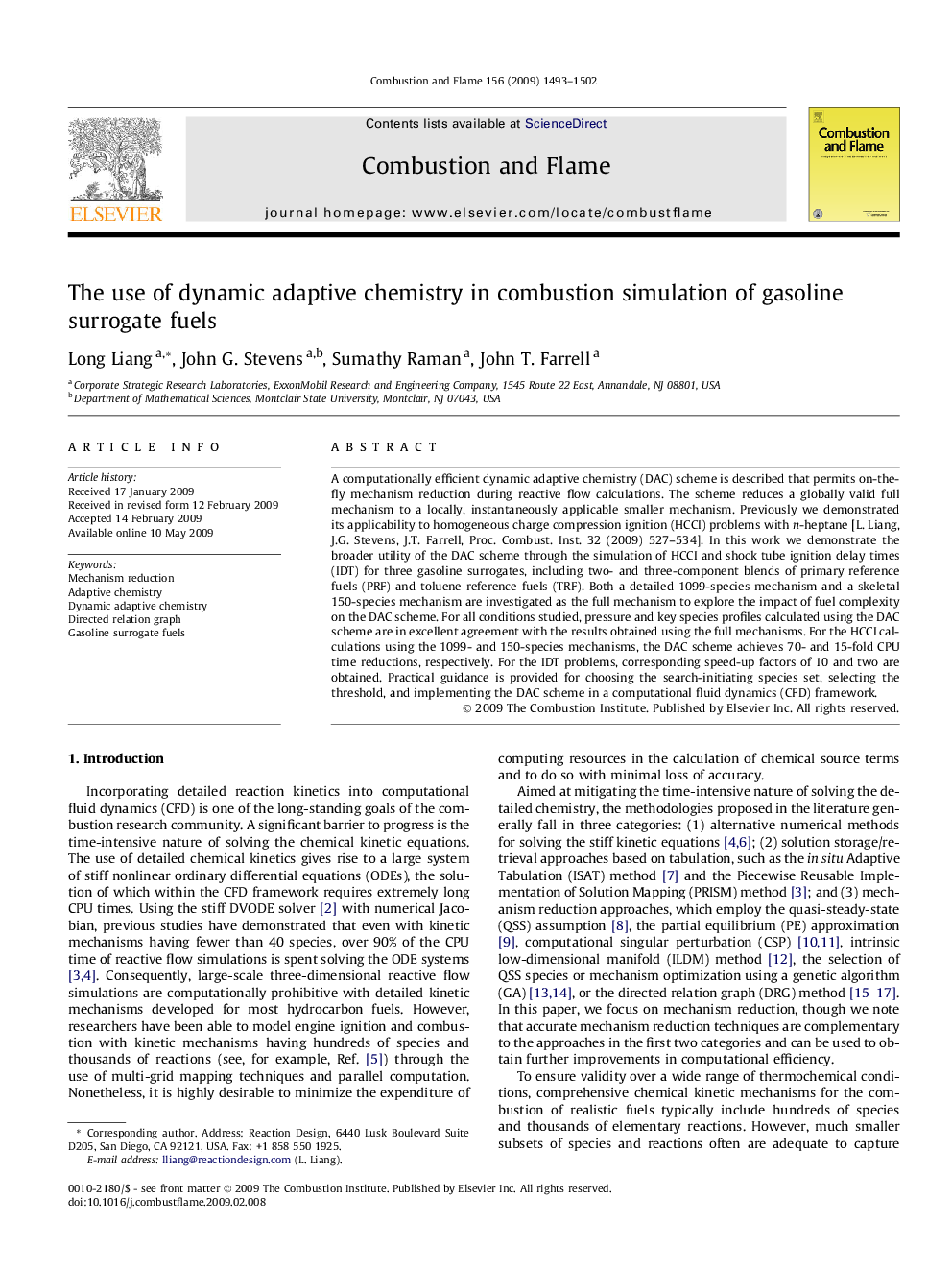| Article ID | Journal | Published Year | Pages | File Type |
|---|---|---|---|---|
| 166928 | Combustion and Flame | 2009 | 10 Pages |
A computationally efficient dynamic adaptive chemistry (DAC) scheme is described that permits on-the-fly mechanism reduction during reactive flow calculations. The scheme reduces a globally valid full mechanism to a locally, instantaneously applicable smaller mechanism. Previously we demonstrated its applicability to homogeneous charge compression ignition (HCCI) problems with n-heptane [L. Liang, J.G. Stevens, J.T. Farrell, Proc. Combust. Inst. 32 (2009) 527–534]. In this work we demonstrate the broader utility of the DAC scheme through the simulation of HCCI and shock tube ignition delay times (IDT) for three gasoline surrogates, including two- and three-component blends of primary reference fuels (PRF) and toluene reference fuels (TRF). Both a detailed 1099-species mechanism and a skeletal 150-species mechanism are investigated as the full mechanism to explore the impact of fuel complexity on the DAC scheme. For all conditions studied, pressure and key species profiles calculated using the DAC scheme are in excellent agreement with the results obtained using the full mechanisms. For the HCCI calculations using the 1099- and 150-species mechanisms, the DAC scheme achieves 70- and 15-fold CPU time reductions, respectively. For the IDT problems, corresponding speed-up factors of 10 and two are obtained. Practical guidance is provided for choosing the search-initiating species set, selecting the threshold, and implementing the DAC scheme in a computational fluid dynamics (CFD) framework.
